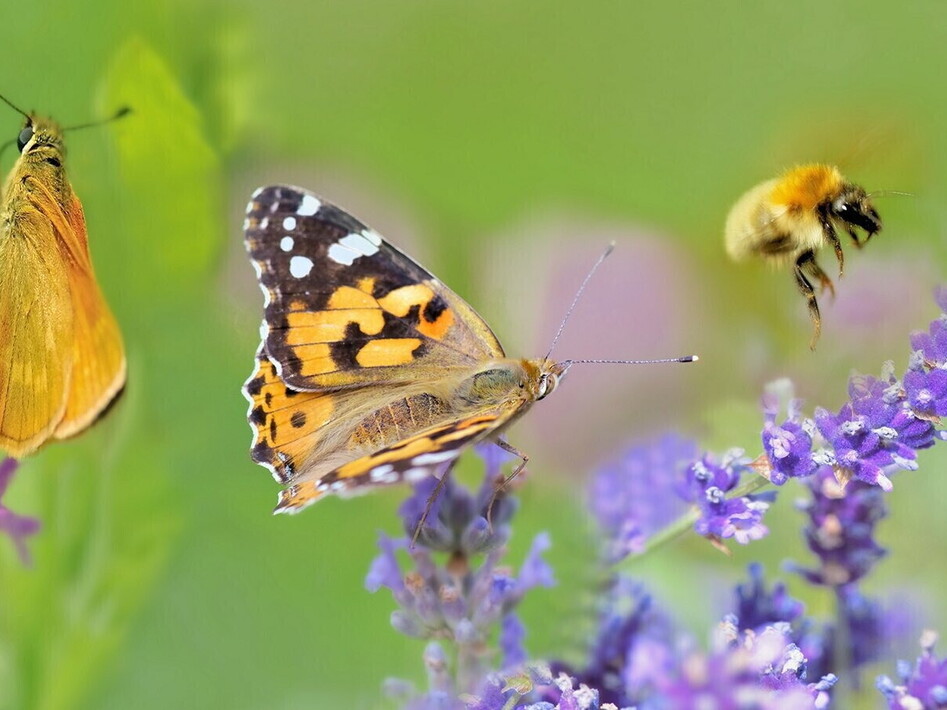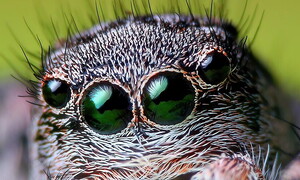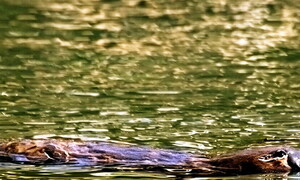A buzz for biodiversity
22 May 2023

Two dates in close proximity, 20 May and 22 May, celebrate two very important and closely related aspects of life on the planet: bees and other pollinating insects and biodiversity. Nature has entrusted insects with the task of being messengers of love. How? Well, with pollination. In exchange for a snack of nectar, insects become covered in pollen and carry it from flower to flower. Pollinating insects are directly responsible for much of life on earth. Almost 90% of flowering plants need pollinators to reproduce. This is why, in Italian, pollinators are also called pronubi. In ancient Rome, pronubi assisted brides and grooms at weddings. So a pronubus is something or someone who favours an amorous union. Which insects are pollinators? Certainly honeybees, but also bumblebees, butterflies, certain flies and then beetles such as ladybirds. Any insect that buzzes and flutters above a flowering hedge is pollinating.
These insects play a fundamental role in the propagation of life on our planet and are of vital importance in agriculture. FAO says that two-thirds of the plants that feed the world depend upon pollinators. 87 food plants and others of medicinal interest benefit from the action of these insects. And their action also turns into money. In the EU alone, an annual share of agricultural production worth EUR 15 billion is directly dependent upon pollinators. Norwegian entomologist Anne Svendrup-Thygeson writes that insects are the tiny cogs that make the world go round. Entomology is the science that studies insects. An entomologist is a person who studies insects.
Yet there is a problem. Populations of pollinating insects are declining. Why is this? Insects account for more than 80% of the planet's animal species. A large part of the Earth's biodiversity consists of six-legged animals. And there are many species yet to be discovered. In short, they are everywhere. According to the European Red List of endangered species compiled by the International Union for Conservation of Nature, 9% of European hymenoptera are threatened with extinction and 150 other species are in decline. Which insects are classed as Hymenoptera? The order includes honeybees and bumblebees which are important pollinators.
Who and what is threatening these insects? There are many factors, all related to human activity. One is the use of pesticides in agriculture. These poisons make no distinction between pests and pollinators. Climate change alters the optimal conditions needed for insects to live and they are forced to leave otherwise they will die. Then there are the fires and droughts and also the disappearance of meadows and natural environments to make way for intensive agriculture and cities. Another problem is the introduction of invasive alien species. These are unknown predators and parasites that attack defenceless insects.
What can we do to help these insects? The European Commission suggests that local administrators should take care of public places to make them hospitable to insects. Parks and gardens can become a temporary home for pollinators, a flyway that allows insects to cross a city to reach the countryside. What about us? In everyday life? What can we do? Well of course, for a start, we can stop killing them!
The US National Academy of Sciences has compiled a list of eight good deeds that each of us can follow to help insects.
- Restoring some natural vegetation in the gardens of houses, schools and libraries. Where there is already some greenery, we should also let wild plants grow.
- Growing typical local plants. Insects prefer familiar flowers to ornamental ones that come from far away.
- Spraying less insecticides.
- Reducing outdoor lighting. Lamps attract and often kill nocturnal insects, such as moths.
- Avoiding washing cars in gardens. Soap is harmful.
- Reading, looking at photos, watching documentaries. Finding out about insects and learning to appreciate them.
- Teaching children not to be afraid of them.
- Supporting environmental policies.
In short, we should welcome insects because they are important not only for the economy but also because they have an aesthetic and cultural value. They are part of the history of an area, and have contributed to building it and increasing its value. They are champions of biodiversity. When we see an insect on a flower, let us stop, observe it and pay attention to it.



